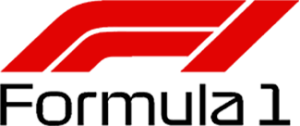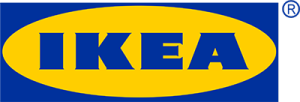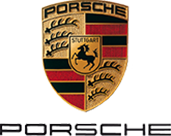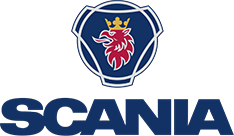Manual extendable forks remain attached to the forklift permanently, offering time, space, and cost savings compared to traditional fork extensions. This mechanical fork extension solution is more affordable than hydraulic forks, making it perfect for applications with infrequent use.
The method of adjusting the outer sleeve is very innovative. It involves simply sliding a pin (which doubles as a grease nipple) to the side, which retracts the locking mechanism. Once the lock is disengaged, the outer sleeve can be repositioned with the other hand until the lock activates again at a new length.
Manual extendable forklift forks like the KOOI®’s are designed for various applications that require handling goods and pallets of different lengths. They are particularly useful in environments where the length of loads varies frequently, eliminating the time-consuming process of changing forks or using inappropriate fork lengths that could lead to unsafe handling conditions.
To prevent back injuries, lifting heavy components should be minimized as much as possible. European and International regulations (EN 1005-2, ISO 11228-1) state that a load of 23-25 kg (depending on the lifting method) is the maximum allowable weight. A fork extension tube at a length of 1500 mm, for example, already reaches this weight.
There’s no longer a need to assemble and disassemble individual sleeves, which saves significant time. Additionally, there’s no need to travel to and from the location where the add-on sleeves are stored. With a bit of bad luck, the colleague also has these sleeves in use and has to wait.
Storage is a cost factor as m² prices in warehouses are getting more and more expensive. Storage of manual set-up tubes also takes up storage space, especially if multiple sets are involved. The location must always be free of encroachment so the operator can assemble the sleeves. With the KOOI® Manual ReachForks, these concerns do not exist because the fork extension is always available.
The manual extension forks can be extended by simply moving the release lever on the front of the nose sideways. There is no need to lock (secure) loose parts where the part can be lost and or where the part can lock itself due to dirt. The locking pawl is rubberized for better grip. In addition, fitting sleeves can cause physical complaints that are not desired.
Collection, assembly, and return of fork sleeves take time, and this time is precious and should, therefore, be put to good use. To eliminate the delays caused by add-on sleeves, the KOOI® manual ReachForks are ideal because the forks’ “extension” is always present on the forklift. A ROI can already be achieved within the year, assuming 15 min per day is necessary for a manual of sleeves.
It is not nice when you are doing your work and you are confronted daily with the fact that the existing forks are not long enough and you run the risk of damage. There is also always the time pressure for logistics workers because, for example, a truck wakes up or the production line has to be unloaded. With manual ReachForks there is virtually no disruption.

With this calculator, we aim to inform you, as a user or potential user of Add-On Sleeves, about the costs associated with purchasing Add-On Sleeves compared to Manual ReachForks. Add-On Sleeves, also known as Fork Extensions, are less expensive to purchase but have several drawbacks, such as:
– Must be transported to and from the storage location, which takes time.
– Require assembly and subsequent disassembly, which takes time.
– Typically weigh over 20-25 kg and can cause injuries such as back strain.
– Have a fixed length.
Features of Manual ReachForks
– Always available on the forklift.
– One-time installation.
– No need for lifting a separate sleeve.
– Adjustable length.
Manual extendable forklift forks are a type of forklift attachment that allows the operator to adjust the length of the forks manually. This feature is particularly useful for handling loads of varying sizes and shapes, as it provides the flexibility to extend or retract the forks to accommodate different pallet sizes and cargo dimensions. Unlike hydraulic or automatic versions, manual extendable forks require the operator to adjust the length by hand, typically using a lever-locking mechanism to secure the forks at the desired length.
The manual extendable forklift forks feature a telescopic design with overlapping sections that can slide in and out. The main fork includes a base section, from which the extendable portion can either retract into or extend out. To adjust the length, the operator aligns holes in the sliding section with corresponding holes in the stationary base section. A pin-lever is then inserted through these aligned holes, securing the forks at the desired length. This mechanism allows for precise adjustments to accommodate various load sizes.
Extendable forklift forks provide numerous benefits: They adjust to accommodate various pallet sizes, enhancing versatility and efficiency. These forks increase productivity by adapting quickly to different tasks without needing equipment changes, saving time. Additionally, their manual extension mechanism eliminates the need for hydraulics, reducing maintenance concerns and potential breakdowns. This cost-effectiveness is further supported by reducing the number of different forks required, thus saving on equipment costs and storage space. Proper length adjustment also helps maintain load balance, improving safety and minimizing the risk of accidents and damage to goods.
Extendable forklift forks are particularly suitable for a variety of load types, enhancing their versatility in warehouse and distribution environments. They excel with loads that vary in size and shape, such as different pallet types including Euro-pallets, oversized pallets, and irregularly shaped items that require a customizable reach. These forks are also ideal for stacking and retrieving goods in tight spaces where precise fork length adjustment can optimize space utilization and improve handling efficiency. Their adaptability makes them perfect for industries dealing with diverse packaging sizes and inventory requirements.
Yes, there are weight limits for extendable forklift forks. These limits are crucial for safe operation and depend on several factors, including the fork design, material, and the extension length. Generally, the load capacity decreases as the forks are extended. This is because extending the forks increases the load center distance from the fulcrum (the front wheels of the forklift), which reduces the overall lifting capacity of the forklift.
Manufacturers typically provide specific weight limits for their forks at various lengths. It’s important to consult the forklift and fork attachment specifications to understand the maximum allowable weight for safe operation at different extensions. Additionally, adhering to these limits helps prevent mechanical failures and ensures stability during lifting operations.
Follow these steps to safely retract and extend the forks of manual extendable forklifts: First, make sure the forklift is on a stable, level surface and that the engine is turned off. Check that there is no load on the forks. Manually pull or push the extendable sections to the desired length, making sure the safety pin drops into the arrestor and verify this by pushing the outer sleeve in -or out without using the lever. When retracting, reverse the procedure and make sure the forks are free of load to avoid loading or damage to the mechanism.
Extendable forks are not universally compatible with all forklifts. Their use depends on the specific model and capabilities of the forklift, including its lifting capacity, fork carriage type. Additionally, the forklift must have sufficient residual lifting capacity to handle the added weight and altered load center that comes with using extendable forks, especially at full extension. Always ensure compatibility to maintain safety and operational efficiency.
Maintenance of manual telescopic lift truck forks consists primarily of regular inspections and lubrication. Check the structural integrity regularly, watching for signs of wear, corrosion or damage, especially around the telescopic parts and pin locking mechanisms. Make sure all moving parts are lubricated to prevent stiffness and rust so that they extend and retract smoothly. There is a grease nipple in the lever that keeps the locking mechanism operating smoothly. It is also essential to regularly check the alignment and straightness of the forks for safe operation. Applying these maintenance practices will extend the life and functionality of the forks.
Manual extendable forklift forks comply with safety regulations by adhering to standards such as ISO 13284, which outlines specifications for fork arms in terms of mechanical properties, technical requirements, and testing. These regulations ensure the forks are designed to safely handle specified loads without failure, maintaining structural integrity even when fully extended. Compliance involves regular inspections, proper maintenance, and adherence to the specified load limits and usage guidelines provided by the manufacturer. By meeting these standards, manual extendable forks provide a reliable and safe solution for material handling, reducing the risk of accidents and equipment damage.
Manual extendable forklift forks can be purchased from specialized material handling suppliers. It’s beneficial to check with local dealers who can provide direct sales and support. Consulting with experts or the original equipment manufacturer can also help in making an informed purchase decision.
That’s correct. The specifications list the capacity per set (two ReachForks together), while the nameplate shows the capacity per individual fork. This is because the forks are interchangeable and can be used separately.














